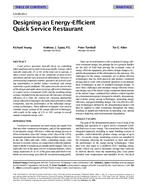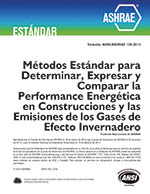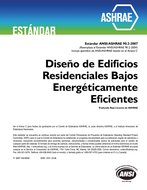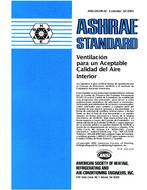Description
Food service operators typically focus on controlling labor and food costs in order to increase profits. Energy, which typically represents 2% to 6% of the total cost to operate, is often a lower priority due to the complexity of food service operations and the lack of practical information. However, in an increasing competitive market, operators are actively seeking opportunities to further reduce overhead, and energy represents a good candidate. This paper presents an overview of the design and application of energy-efficient technologies to a quick service restaurant (QSR) and the resulting energy savings. Included in the discussion are the relevance of energy efficiency in a QSR, the criteria for choosing appropriate energy-efficient technologies, the replication of results to other restaurants, and the performance of the individual energysaving technologies. Three different techniques were used to estimate energy savings of the energy-efficient technologies, with results in the range of 12% to 18% savings in overall annual restaurant energy costs.
Units: Dual
Citation: Symposium, ASHRAE Transactions, vol. 105, pt. 1
Product Details
- Published:
- 1999
- Number of Pages:
- 11
- File Size:
- 1 file , 1.2 MB
- Product Code(s):
- D-7627




